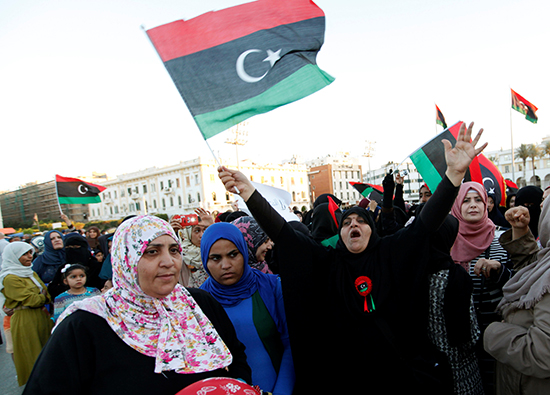Washington, August 2, 2016–Libyan authorities should immediately charge or release photographer and cameraman Saliem Alshebl, the Committee to Protect Journalists said today. Alshebl, who works for the Libya satellite channel, which is allied with the National Accord government, was arrested July 29 while covering an anti-government protest at Tripoli’s Martyrs’ Square, according to his employer and the Libyan Ministry of Interior.
The Libyan Ministry of Interior said in a statement published on its website and official Facebook group yesterday that Alshebl was in their custody and that he was in good health. The ministry said security patrols detained the journalist and that he was under investigation for unspecified criminal activities.
“If the Libyan authorities have evidence that Saliem Alshebl is guilty of any crime save documenting a protest, they should present it without delay. Otherwise, they should release him immediately,” CPJ Middle East and North Africa Program Coordinator Sherif Mansour said. “Libya is dangerous enough for journalists without their having to worry about arbitrary arrest.”
Alshebl’s brother, Musab, on July 30 told the Libya channel that the Nawasi Brigade, also known as the Eighth Force, detained Alshebl the previous day and was holding him at a detention center in Tripoli’s Ain Zara district, though the family had not been told what, if any, charges the journalist might face. Musab said the family learned that Alshebl was detained at Ain Zara from two other journalists who had been detained at the same protest on charges of filming without a license, then released, according to Libya channel and local news reports.
In remarks carried by the Libya channel, its director, Mohamed Najm, said that Alshebl was licensed to work, and that the channel’s journalists covering the protest in Tripoli had told colleagues that armed groups were “stalking” them, and that they feared arrest.
The July 29 demonstration was called to protest the involvement of France’s special forces in fighting in Libya. The U.N.-backed government banned the protest and any coverage of it, according to news reports. Police seized several TV crews’ equipment and detained them briefly before releasing them with a warning not to continue filming, according to news reports and witnesses writing on social media.
Libya is a dangerous environment for journalists. On July 21, Libyan photojournalist Abdelqadir Fassouk was shot to death as he covered fighting in Sirte. He was the second Libyan journalist killed on duty in the space of a month. Freelance photojournalist Khaled al-Zintani was fatally shot on June 24 while covering fighting in the eastern Libyan city of Benghazi.
